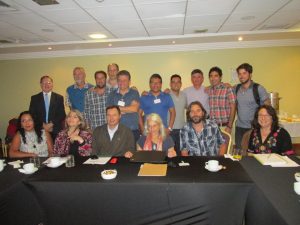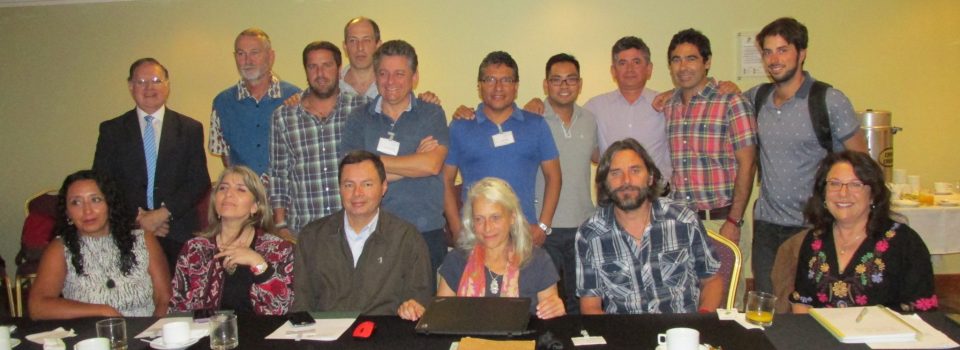Workshop to develop sustainability indicators for the management area system
March 20th, 2017
It was attended by professionals from the Instituto de Fomento Pesquero, Servicio Nacional de Pesca, Subsecretaría de Pesca.
In Valparaiso, the workshop “Sustainability Indicators for the Benthic Resource Management and Exploitation Areas System (AMERB)” was carried out. This was organized by The Nature Conservancy (TNC), a non-profit organization with more than 65 years of work around the world protecting the nature and preserving life for future generations.
Natalio Godoy, in charge of TNC’s marine strategy in Chile, explained that “the state of Chile is a pioneer in the implementation of areas for management and exploitation of benthic resources as a mechanism for governance and sustainable use of resources. This year the management regime in Chile is 25 years old and government organizations, such as the IFOP, Subpesca and Sernapesca have played a key role in co-administration and scientific and technical support for organizations of artisanal fishermen. This alliance has also had the support of universities, research centers that have focused their efforts on the knowledge of ecological, biological, social and economic dynamics in the management areas. For these reasons, TNC Chile convoked a group of experts from different fields, public and private, national and international, to analyze and discuss the indicators that are currently used to evaluate the sustainability of these areas and, as far as possible, we can improve the system to ensure that artisanal fishing activity is maintained over time.”
Luis Ariz, Head of Management Areas Section of the Instituto de Fomento Pesquero, said that the analysis of biological-fishing and socio-economic indicators is part of the work carried out by IFOP on issues of the AMERB, with the purpose of advising the Subsecretaría de Pesca y Acuicultura on these matters. Then, the workshop was a good opportunity to contribute and discuss our work, analyzing its relevance and how to improve it. It was satisfactory to have a group of experts, stressing the participation of Dr. Ana Parma and Dr. Jeremy Prince, both internationally recognized for their vast experience in studies of benthic artisanal fisheries. It is gratifying to know the interest and recognition of the work we do at the IFOP and that draws attention beyond the borders of our country, so we thanked the TNC for the invitation to collaborate and interact with peers committed to the sustainability of Benthic artisanal fisheries.
Ana Parma, Researcher of the National Patagonian Center (CENPAT), Argentina, added “the workshop focused on the indicators topics that are vital to evaluate how the management areas are functioning; in Chile, it has many years of implementation and has given very good results here, there are other countries that are just beginning to implement the AMER. The workshop helped us realize that there is a long way to go, no doubt to improve; but Chile has done a very good job in these years.”
Susana Anderson, head of TNC for the conservation program Oceans for Latin America referred to the workshop “Chile is a pioneer in establishing the system of management and indicators of system sustainability; therefore, for us it is very important to know the lessons learned, since this information can be utilized in other similar initiatives in Latin America. What was observed in Chile is an important interdisciplinary effort and this workshop aimed to identify and improve some sustainability indicators of the management area system that will allow us to export the model to countries that require their artisanal fishing activities to be more sustainable.”
Jeremy Prince, academician and international consultant for Biospherics, of Australian origin, referred to the management areas in Chile. “The system of management areas in Chile has shown an interesting evolution: from a geographic point of view, in the 90’s in Chile, a few management areas had been established and today there are about 700 established areas along the coast of Chile. This shows that management areas, as a fishery management tool for benthic resources, have been well received by artisanal fishermen. Similar areas have been established in other countries, such as Mexico, Colombia, Brazil and in Asia Pacific, but in these cases, the traditional community management of fishermen was not considered. In the case of Chile, a system has been created in which the Government recognizes that community management by artisanal fishers is important, which is very encouraging.”
